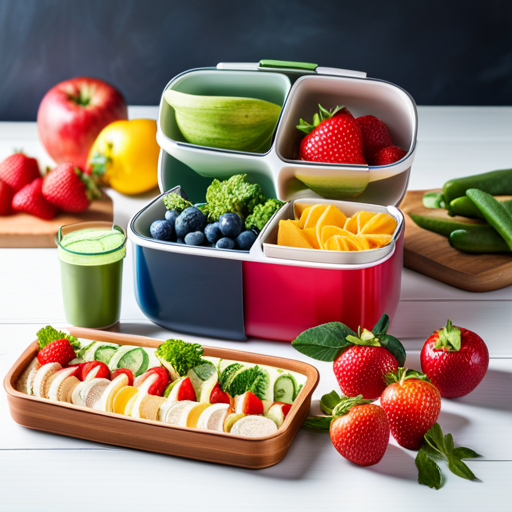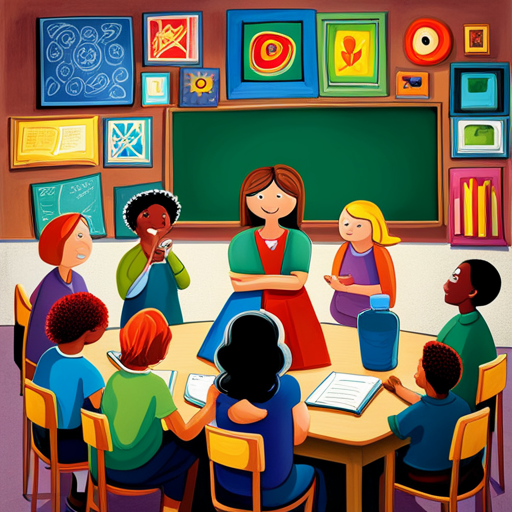"Cherishing Little Steps - A Haven for Baby and Family Journeys"
Surviving Kindergarten Week
Welcome to ‘Surviving Kindergarten Week,’ where we’ll guide you through the exciting journey of your child’s first year in school! This special week is all about equipping you with the knowledge and support you need to navigate the challenges of kindergarten with confidence.
We understand that starting kindergarten can feel like a big step for both you and your child, but don’t worry, we’re here to help you every step of the way.
From preparing your child emotionally to establishing a morning routine, we’ll provide you with practical tips and strategies to ensure a smooth transition.
So, get ready to embrace this new chapter and empower your child to thrive in kindergarten!
Preparing Your Child Emotionally
Get your child emotionally ready for kindergarten by helping them navigate through the range of feelings they may experience during this transition. Emotional readiness is just as important as academic preparedness when it comes to starting kindergarten. Your child may feel excited, nervous, or even scared about this new chapter in their life. It’s essential to provide them with the necessary coping strategies to manage their emotions effectively.
One way to support your child’s emotional readiness is by talking openly about their feelings. Encourage them to express any worries or concerns they may have about starting kindergarten. Validate their emotions and assure them that it’s normal to feel a mix of excitement and nervousness. By acknowledging their feelings, you’re helping them feel heard and understood.
Another coping strategy is to establish a routine. Kindergarten can be overwhelming for children, so having a predictable daily schedule can provide them with a sense of stability and security. Create a morning and bedtime routine that includes activities your child enjoys, such as reading a book together or having a calming bath. This will help them feel grounded and prepared for the day ahead.
Additionally, practicing separation can help your child feel more comfortable on their first day of kindergarten. Gradually introduce short periods of separation, such as leaving them with a trusted caregiver or enrolling them in a playgroup. This will help them build resilience and develop confidence in handling time away from you.
Lastly, encourage your child to make connections with other children who’ll be starting kindergarten. Arrange playdates or attend community events where they can meet and interact with their future classmates. Building these relationships before school starts will help your child feel more at ease knowing they aren’t alone in this new environment.
Establishing a Morning Routine

To help your child transition smoothly into kindergarten, it’s important to establish a morning routine that sets the tone for a successful day. Starting each day with a structured routine can provide a sense of stability and security for your little one. Here are some morning routine tips to help you establish a solid foundation for your child’s day.
Firstly, it’s important to wake up at a consistent time each morning. This helps to regulate your child’s internal clock, making it easier for them to get up and get ready for the day.
Next, prioritize tasks that need to be accomplished in the morning, such as getting dressed, brushing teeth, and having breakfast. By establishing a consistent order for these activities, your child will know what to expect and can develop a sense of independence and responsibility.
Creating a visual schedule can also be helpful. Use pictures or words to outline the tasks that need to be completed, and display it in a prominent place where your child can easily see it. This visual aid will provide a clear structure and help your child understand what needs to be done.
Lastly, make sure to leave enough time for play and relaxation before heading off to kindergarten. Allowing your child some free time in the morning can help reduce any feelings of rush or stress.
Packing the Perfect Lunchbox

Don’t forget to pack a nutritious lunchbox for your kindergartener. As you navigate through the chaos of kindergarten week, it’s important to provide your little one with a lunch that fuels their growing bodies and keeps them energized throughout the day. But coming up with new and exciting lunchbox ideas can be a challenge. Luckily, we’re here to help!
When it comes to packing a perfect lunchbox, variety is key. Include a mix of fruits, vegetables, proteins, and whole grains to ensure a well-balanced meal. Try slicing up some colorful bell peppers, cherry tomatoes, and cucumber sticks for a refreshing and crunchy snack. Add in some protein by including boiled eggs or grilled chicken strips. Don’t forget to pack a serving of whole grains, such as whole wheat bread or crackers, to provide your little one with lasting energy.
To make the lunchbox more appealing, get creative with presentation. Use cookie cutters to shape sandwiches into fun and exciting shapes. Pack bite-sized fruit kabobs or cheese cubes on skewers to make the meal more enjoyable. And don’t forget to add a little treat like a small piece of dark chocolate or a homemade granola bar as a special surprise.
Navigating the First-Day Jitters
As your kindergartener prepares for their first day, it’s normal to feel a mix of excitement and nervousness. It’s a big milestone for both you and your child. To help ease those first-day jitters, there are a few things you can do to prepare mentally and calm their nerves.
One way to prepare mentally is to talk about what to expect on the first day. Sit down with your child and go over the daily routine. Explain that there will be new friends to meet, fun activities to do, and a kind teacher to guide them. Encourage them to ask questions and express any concerns they may have.
Another helpful tip is to visit the school before the first day. Take a tour of the classroom, playground, and other areas your child will be spending time in. Familiarizing them with the environment can help alleviate anxiety.
Additionally, practicing the morning routine can make the first day go smoothly. Set up a mock morning routine a few days before school starts. Wake up at the same time, have breakfast, get dressed, and take a walk to the bus stop or school. This will help your child feel more confident and prepared on the actual first day.
On the morning of the first day, make sure to provide a calm and positive atmosphere at home. Encourage your child, reassure them that they’ll do great, and remind them of how proud you’re of them. Saying goodbye may be emotional, but keep it short and sweet. Trust that your child’s teacher will take good care of them.
Encouraging Social Skills and Making Friends

Developing friendships and social skills is an important aspect of your kindergartener’s experience. As they embark on this new journey, here are a few ways you can help them build resilience and foster empathy:
-
Encourage playdates: Organizing playdates with other children from their class can provide opportunities for your child to practice socializing and making friends in a familiar setting. This can help them feel more comfortable and confident when interacting with their peers at school.
-
Role-play scenarios: Role-playing various social situations with your child can help them understand different perspectives and practice problem-solving skills. By acting out scenarios like sharing toys or taking turns, you can teach them empathy and help them navigate social interactions with kindness and understanding.
-
Model positive behavior: Children learn by observing the behavior of those around them. By being a positive role model and demonstrating kindness, respect, and inclusivity in your own interactions, you can teach your child valuable social skills. Encourage them to follow your lead and praise them when they exhibit these behaviors.
Dealing With Separation Anxiety
Prepare your child for overcoming separation anxiety in kindergarten. Starting school can be a challenging and emotional time for both parents and children. It’s natural for your little one to feel anxious about being away from you for the first time. However, with the right coping strategies and parental involvement, you can help ease their worries and make the transition smoother.
Firstly, establish a consistent routine before the start of kindergarten. This will provide your child with a sense of security and predictability. Talk to them about what to expect during the day, including drop-off and pick-up times. Reassure them that you’ll always come back to get them.
Next, encourage your child to express their feelings and fears. Listen attentively and validate their emotions. Let them know that it’s okay to feel nervous, but also highlight the exciting things they’ll experience at school.
Involve your child in the preparation process. Take them shopping for school supplies and let them choose a special item, like a backpack or lunchbox. This will give them a sense of ownership and control over their new environment.
On the first day of kindergarten, stay calm and positive. Show confidence in your child’s ability to handle the situation. Keep goodbyes brief but reassuring, and avoid lingering or making promises you can’t keep.
Lastly, establish a communication routine with your child’s teacher. Stay updated on their progress and address any concerns promptly.
Managing Homework and School Projects
To effectively manage homework and school projects in kindergarten, you can start by setting up a designated study area at home. This area should be free from distractions, such as toys or electronics, and have all the necessary supplies readily available.
Here are three tips to help you and your child stay organized and on top of their assignments:
-
Create a homework schedule: Establish a consistent time each day for homework and stick to it. This routine will help your child develop good study habits and manage their time effectively.
-
Break tasks into smaller steps: Kindergarten projects can sometimes feel overwhelming, but breaking them down into smaller, manageable tasks can make them more manageable. Encourage your child to focus on one step at a time, and offer support and guidance along the way.
-
Be involved and supportive: Parental involvement is crucial in managing homework and school projects. Show interest in your child’s assignments and ask about their progress. Offer encouragement and praise their efforts, even if the results aren’t perfect. This support will motivate them and make the learning process more enjoyable.
Supporting Your Child’s Learning at Home
To support your child’s learning at home, continue to stay involved in their assignments and offer encouragement and praise for their efforts. As your child progresses through kindergarten, homework organization becomes crucial in helping them develop good study habits. Create a designated study area in your home where your child can focus and have all the necessary materials readily available. Teach them how to prioritize tasks and break them down into smaller, manageable steps. This will help them stay organized and complete their homework in a timely manner.
In addition to homework organization, incorporating educational games into your child’s learning routine can make studying more enjoyable. Look for interactive games that align with the topics they’re learning in school. These games not only reinforce the concepts taught in class but also provide an opportunity for your child to apply what they’ve learned in a fun and engaging way. Encourage them to play these games regularly, as it won’t only enhance their understanding but also boost their confidence in their academic abilities.
Communicating With Your Child’s Teacher

Stay engaged with your child’s education by maintaining open communication with their teacher. Building a strong partnership with your child’s teacher is crucial in helping them succeed in kindergarten. Here are a few tips to help you effectively communicate with your child’s teacher:
-
Attend parent-teacher conferences: These meetings provide an opportunity to discuss your child’s progress, strengths, and areas for improvement. Come prepared with questions and be open to the teacher’s feedback. This collaboration will ensure that you’re on the same page when it comes to your child’s educational journey.
-
Initiate regular check-ins: Don’t wait for parent-teacher conferences to communicate with the teacher. Reach out via email or set up a time to talk on the phone. Share any concerns or updates about your child. By keeping the lines of communication open, you can address any issues promptly.
-
Be proactive in volunteering: Offer your assistance in the classroom or during school events. This not only shows your support but also gives you an opportunity to observe your child’s interactions and progress in the school environment.
Celebrating Milestones and Achievements
Celebrate your child’s milestones and achievements throughout their kindergarten journey. It’s important to acknowledge and celebrate their accomplishments, no matter how big or small. Kindergarten is a time of growth and development, and each milestone reached is a stepping stone towards their future success.
Setting goals is an essential part of any learning experience. Encourage your child to set goals for themselves, whether it’s learning to read a new book or mastering a new math concept. By setting goals, they learn the importance of perseverance and hard work. Celebrate when they achieve these goals, as it reinforces their sense of accomplishment and boosts their self-confidence.
When celebrating your child’s achievements, remember to focus on the effort they put in rather than the outcome. Praise them for their determination and resilience, as these qualities will serve them well throughout their lives. Create a supportive and nurturing environment where they feel safe to take risks and explore new challenges.
In addition to celebrating their individual achievements, it’s also important to celebrate their growth as part of a community. Encourage them to celebrate their classmates’ accomplishments and teach them the value of supporting and uplifting others.
Frequently Asked Questions
How Do I Choose the Right Backpack for My Child?
You’ll want to consider a few things when choosing a backpack for your child. Look for features like adjustable straps, a padded back, and multiple compartments for organization. It’s important to find one that fits comfortably and can hold all their school supplies.
What Should My Child Wear on the First Day of Kindergarten?
On the first day of kindergarten, dress your child in something comfortable and easy to move in. Don’t forget to consider the weather! It’s all part of the exciting back-to-school shopping experience.
How Can I Help My Child Adjust to the New School Environment?
You can help your child adjust to the new school environment by creating a routine and gradually exposing them to the new surroundings. Encourage them to make friends and be patient with shy children.
What Should I Do if My Child Refuses to Eat the Lunch I Packed?
If your child refuses to eat the lunch you packed, don’t worry! Dealing with picky eaters is common. Try packing alternative lunch options like finger foods or a variety of fruits and veggies.
Are There Any Specific Toys or Activities That Can Help My Child Develop Social Skills?
You can help your child develop social skills through role playing games and group building exercises. These activities allow them to practice communication, cooperation, and empathy, all essential for making friends and navigating social situations.
Conclusion
Congratulations! You’ve made it through the survival guide for kindergarten week. By preparing your child emotionally, establishing a morning routine, and packing the perfect lunchbox, you’ve set them up for success.
Navigating first-day jitters and encouraging social skills will help them make friends and thrive. Managing homework and supporting learning at home will ensure their continued growth.
Communicating with your child’s teacher and celebrating milestones will keep you connected and involved.
You’ve got this, and your child is on their way to a fantastic kindergarten experience!


